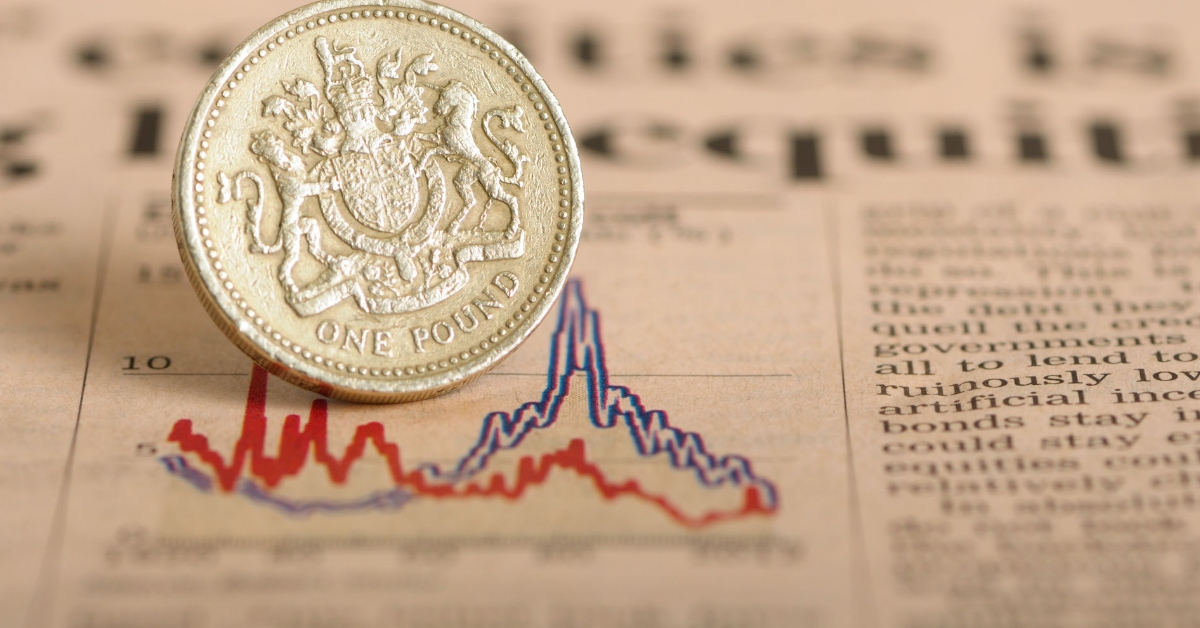The UK is set to enter a recession which will hit millions of the most vulnerable households, it has been claimed.
According to a think tank, stagflation – where an economy sees slow growth, high unemployment and rising prices – has returned for the first time since the 1970s.
The warning has been issued by the National Institute of Economic and Social Research (NIESR).
In a new report, the body indicated that there could be a “three-quarter technical recession, but a relatively shallow one”.
However, it also said that there is an “increased possibility of a deeper recession”.
The number of people living pay-check to pay-check will nearly double from 3.9 million to 6.8 million, or 25%, in 2024, it stated,
And one in five UK households are estimated to have no savings by 2024.
Professor Stephen Millard, NIESR deputy director for macroeconomics, has urged the Bank of England to try and get inflation under control.
The next chancellor of the UK, Millard said, should ensure that households hit by the cost-of-living squeeze are supported.
“The UK economy is heading into a period of stagflation with high inflation and a recession hitting the economy simultaneously,” he stated.
The report by the NIESR called for the UK Government to increase universal credit payments by £25 per week for at least six months from October.
It also backs an increase in energy bill relief payments from £400 to £600 for 11 million low-income households.
Real incomes are forecast in the report to be be permanently lower, dropping 2.5% in 2022 alone.
Real incomes will be 7% below where they were headed before Covid by 2026, it said.
Around 3% to 5% of this hit will come from Brexit, 1% to 3% from energy price rises and the remainder from UK Government policy, the report indicated.
Professor Adrian Pabst, deputy director for public policy at NIESR, said the next UK prime minister and their ministerial team must provide “immediate emergency support” to those who are hardest hit.
“All households are facing soaring energy and food bills but too many have to resort to credit, build up payment arrears or see their savings wiped out,” he said.
“The incoming administration needs to provide immediate emergency support to the 1.2 million hardest hit households and the one in five households that will become financially vulnerable as the energy price cap is lifted and the recession begins to bite.”
A Scottish Government spokesperson said the support measures set out by the UK Government “fall far short” of what is needed to help the poorest households that are struggling.
“Many households will be concerned about a possible recession and the Scottish Government has recognised for some time the growing pressures on family budgets,” they said.
“That is why, building on minsters’ long standing commitment to reduce inequalities, we have allocated almost £3bn in this financial year which will contribute to helping families and households face the increased cost of living.
“This includes targeted support such as increasing the Scottish Child Payment to £25 per child per week when we extend it to under 16s by the end of 2022 as well as increased access to free childcare, baby boxes, prescriptions, travel and social security payments not available anywhere else in the UK.”
They continued: “The UK Government’s support measures are welcome, but fall far short of what is needed to help the poorest households struggling now with the cost of living crisis.
“UK Ministers’ hold most of the powers needed to tackle the cost of living crisis and child poverty.
“Scottish Ministers’ have continually urged them to use all the levers at their disposal and provide immediate support to struggling households.”
Follow STV News on WhatsApp
Scan the QR code on your mobile device for all the latest news from around the country


 iStock
iStock
























